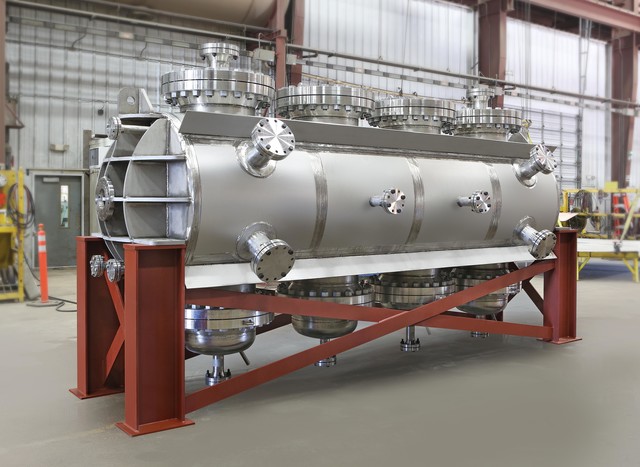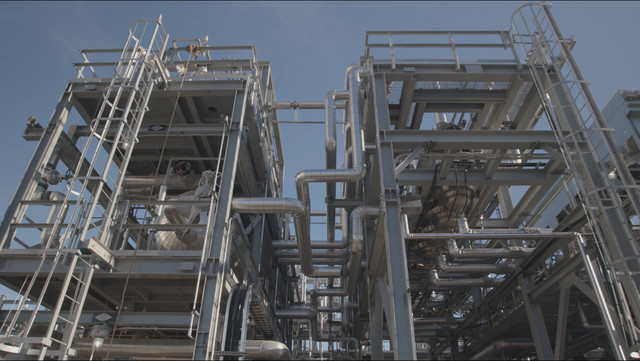According to BA, the proposed plant on the Humber Estuary will convert more than half a million tonnes of household and commercial waste into sustainable jet fuel each year. The airline claims that using the fuel will reduce greenhouse gas emissions by 70 per cent compared with the fossil fuel equivalent, as well as cutting particulates from engine exhausts by up to 90 per cent and sulphur dioxides almost entirely.
Electrolyser turns CO2 from air into jet fuel
US Navy announces plans to make jet fuel out of seawater
The project is being led by Altalto Immingham Limited, a subsidiary of renewable fuels company Velocys, whose proprietary technology converts the waste to hydrocarbons. At the heart of the process is a micro-channel Fischer-Tropsch reactor featuring Veolcys’s Actocat catalyst. During this stage, a gas mixture of carbon and hydrogen is converted into the liquid hydrocarbons that form the basis of the sustainable fuel.

BA intends to purchase jet fuel produced at the plant for use in its aircraft, while Shell intends to purchase both jet fuel and road fuel, which may then be blended and sold on to Shell customers as ‘greener’ petroleum products. The Dutch energy giant will also provide technical expertise around gasification and Fischer-Tropsch conversion.
“Sustainable fuels can be a game-changer for aviation which will help power our aircraft for years to come,” said Alex Cruz, British Airways chairman and CEO.
“This development is an important step in the reduction of our carbon emissions and meeting the industry targets of carbon-neutral growth from 2020, and a 50 per cent in CO2 reduction by 2050 from 2005 levels. It also brings the UK another step closer to becoming a global leader in sustainable aviation fuels.”

Originally a spin-out from Oxford University, Velocys has been working on waste-to-fuel for more than 15 years. The company has demonstrated its technology at commercial scale at a plant in Oklahoma run by Envia Energy. That plant is no longer operational following a leak in 2018 that led to financial difficulties, but Velocys claims the issues were not related to its equipment. The company is now focusing its efforts on a new project in Mississippi as well as the Immingham plant in the UK.
“Velocys has a solution to decarbonise aviation fuel by converting an unwanted feedstock – household and commercial solid waste – to create a highly valuable product: sustainable transport fuels,” said CEO Henrik Wareborn.
“This will cut greenhouse gas emissions from aviation, as well as improving air quality and helping to tackle our waste problem.”





Project to investigate hybrid approach to titanium manufacturing
What is this a hybrid of? Superplastic forming tends to be performed slowly as otherwise the behaviour is the hot creep that typifies hot...